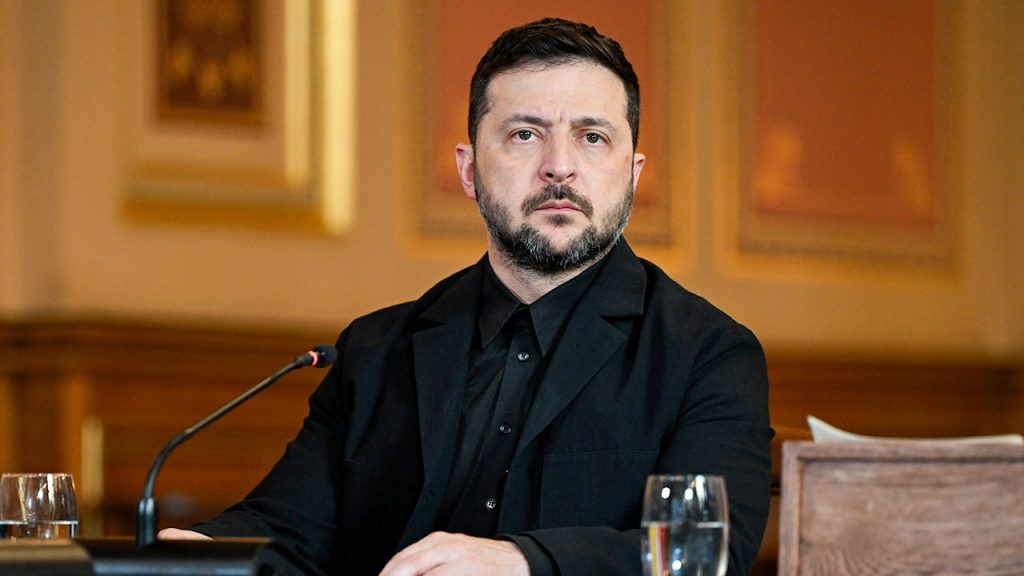Ukrainian Corruption Scandal: Zelenskyy’s Former Associate Accused of $100 Million Embezzlement
A major corruption scandal has erupted in Ukraine as Tymur Mindich, once a close business associate of President Volodymyr Zelenskyy, stands accused of orchestrating a massive $100 million embezzlement scheme. According to Ukraine’s National Anti-Corruption Bureau (NABU), Mindich allegedly established an elaborate corruption network to control key state-owned enterprises, most notably Energoatom, Ukraine’s nuclear power company. The investigation, spanning 15 months and involving approximately 1,000 hours of wiretapping, revealed that Mindich reportedly used his connections to place loyalists in influential positions who would then demand kickbacks as high as 15% from contractors. Despite their previous business relationship—Mindich was a co-owner of Zelenskyy’s production company Kvartal 95—the Ukrainian President has not been implicated in the investigation. In fact, Zelenskyy responded to the revelations by issuing sanctions against his former partner, emphasizing that “any effective actions against corruption are very needed” and that “the inevitability of punishment is necessary.”
The scheme’s discovery has sent shockwaves through Ukraine’s government and business circles. Anti-corruption watchdogs had previously expressed concerns about Mindich’s growing influence over lucrative Ukrainian industries, which many believe he accessed through his relationship with Zelenskyy. According to activist Tetiana Shevchuk of Ukraine’s Anti-Corruption Action Center, “What we were hearing only as rumors now has some evidence. For a long time we have heard that Tymur Mindich is a shadow controller of the energy sector.” The NABU investigation culminated in approximately 70 raids, including searches of properties connected to Mindich. However, sources indicate that Mindich was tipped off about the impending law enforcement actions and fled before they could be carried out. He reportedly escaped to Israel as investigators closed in, and currently remains at large, beyond the reach of Ukrainian authorities.
The scandal has significant implications for Ukraine’s governance, especially during wartime. The corruption scheme allegedly involved other high-ranking officials, including former Energy Minister Herman Halushchenko, whose properties were also raided as part of the investigation. The situation is particularly troubling given the timing—Ukraine is fighting for its survival against Russian aggression while dealing with critical energy shortages. As Shevchuk pointedly noted, Mindich “would have never been in politics, never been in a position of power or business without his connection to Zelenskyy, and this magnitude is worse because it’s happening during war time, and it is related to energy infrastructure at a time when Ukrainians don’t have electricity in their homes.” The scandal underscores the persistent challenges of corruption in Ukraine, even as the country receives billions in international aid and pursues democratic reforms.
The operation of the scheme was sophisticated yet straightforward in its execution. According to the investigation, Mindich established control over key officials who would create bureaucratic obstacles for contractors working with Energoatom. These contractors were then pressured to pay substantial kickbacks to have these obstacles removed, essentially creating a shadow tax system that diverted millions from critical energy projects. This type of corruption is particularly damaging in wartime Ukraine, where energy infrastructure has been repeatedly targeted by Russian attacks, and where efficient operation of nuclear power facilities is essential for national survival. The diversion of funds from such critical infrastructure projects represents not just financial crime but potentially compromises national security during an existential crisis.
This scandal is not the only corruption investigation involving Mindich. NABU is reportedly conducting another probe into his dealings with Ukraine’s top drone manufacturer, Fire Point, though no findings have been released from this investigation yet. The multiple investigations suggest a pattern of leveraging political connections for personal gain across different sectors of Ukraine’s economy. For Zelenskyy, who came to power on an anti-corruption platform, the scandal presents both a challenge and an opportunity. While the close association with Mindich could raise questions about his judgment in business relationships, his decisive action to sanction his former associate demonstrates a commitment to fighting corruption regardless of personal connections—a stance that could potentially strengthen his political position if handled transparently.
The Mindich scandal occurs against the backdrop of Ukraine’s ongoing efforts to align with European Union standards on corruption and governance, a key requirement for the country’s EU aspirations. Western allies, who have provided billions in military and economic aid, closely monitor corruption cases as indicators of Ukraine’s commitment to reform. Zelenskyy’s administration has emphasized that corruption investigations demonstrate the functioning of independent anti-corruption institutions rather than systemic failure. However, the scale and proximity of this particular case—involving someone so close to the president—presents a unique test for Ukraine’s anti-corruption framework and Zelenskyy’s leadership. As the case unfolds, it will likely serve as a benchmark for how effectively Ukraine can address high-level corruption while managing a war and pursuing international integration, with significant implications for its relationships with Western partners and its post-war reconstruction efforts.















